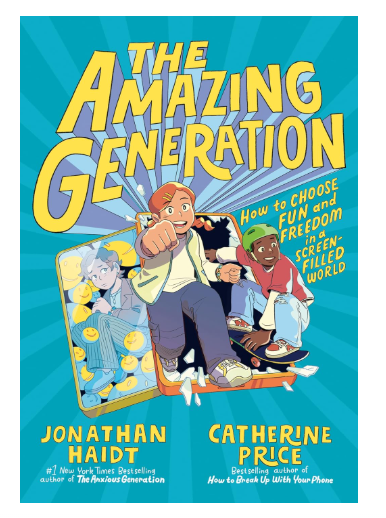Therapist Tessa Stuckey helps us navigate suicide prevention
In her practice, Tessa started recognizing a trend about 6 years ago. “Kids would come to me with typical life stressors, mom got mad at them, they didn’t empty their dishwasher, or they made a C on a chemistry exam. Typical life stressors. But their go-to answer was always a dark, dark thought, whether that be self-harm or suicidal thinking.” Tessa started investigating and found that “every single one of them had issues that were rooted back to an overuse of unhealthy screens or social media.“
Tech and suicide are going hand in hand more often, and it can be very scary for parents. Licensed professional counselor Tessa Stuckey spoke to our podcast “Screen Less Play More” about the trends she has been seeing lately and what we can do about it to safeguard our kids from harm.
Hear her six steps to avoid teen suicide, and read on!
Tech makes kids want it NOW!
Tech was getting in the way. But also the fast paced, instant-gratification life we are living now. Tessa says, “I realized that this was a true societal cultural issue that was almost encouraging our kids to live in a world where if they can’t have an instant fix, then they shouldn’t learn how to truly self-regulate.”
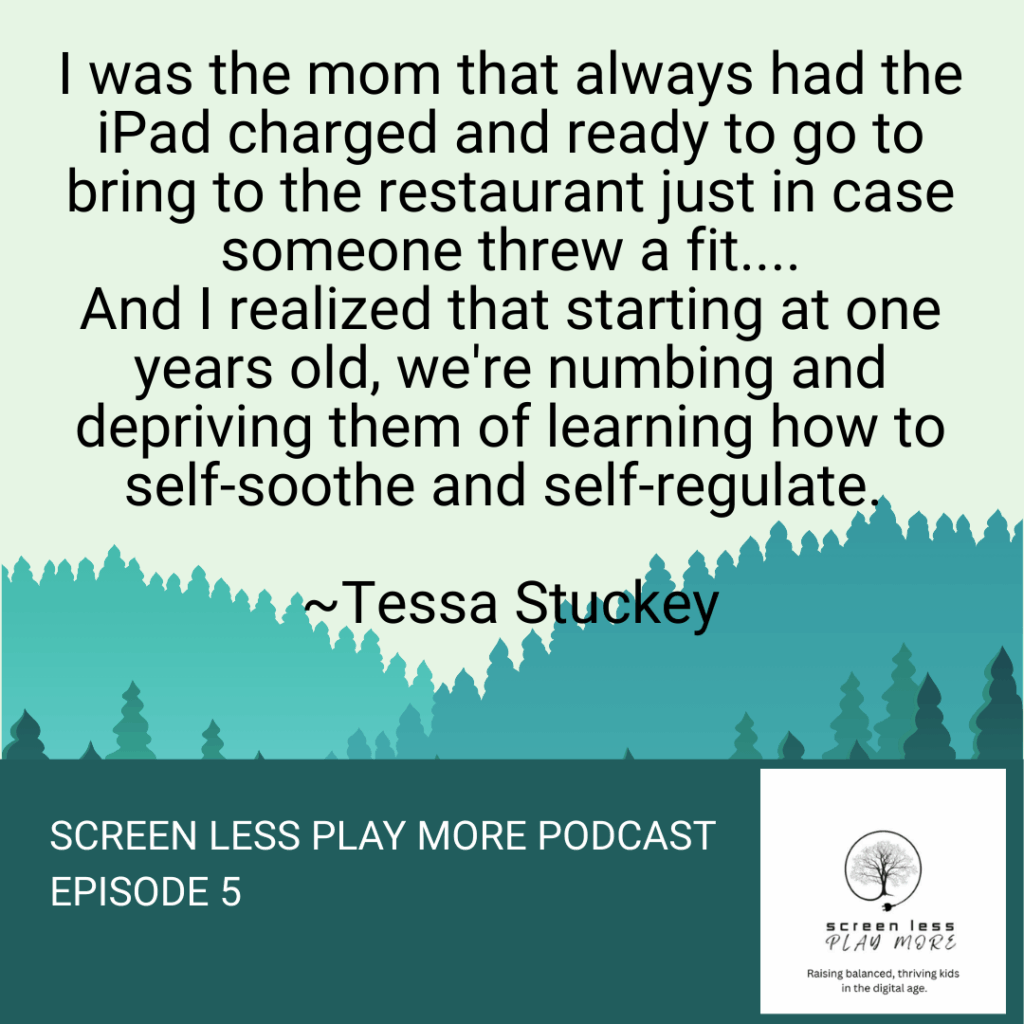
Tessa is the author of “For the Sake of Our Youth: A Therapist’s Perspective on Raising Your Family in Today’s Culture.” In her book, Tessa sets out six ways that the tech-heavy society is influencing kids and teens to turn to self-harm and suicide, and most importantly, what we can do about it. She discussed all six steps with us in our “Screen Less Play More” podcast, and gave excellent ideas that parents can start implementing today! Tessa stresses the importance of building resilience, fostering personal connections, and providing healthy coping mechanisms for children.
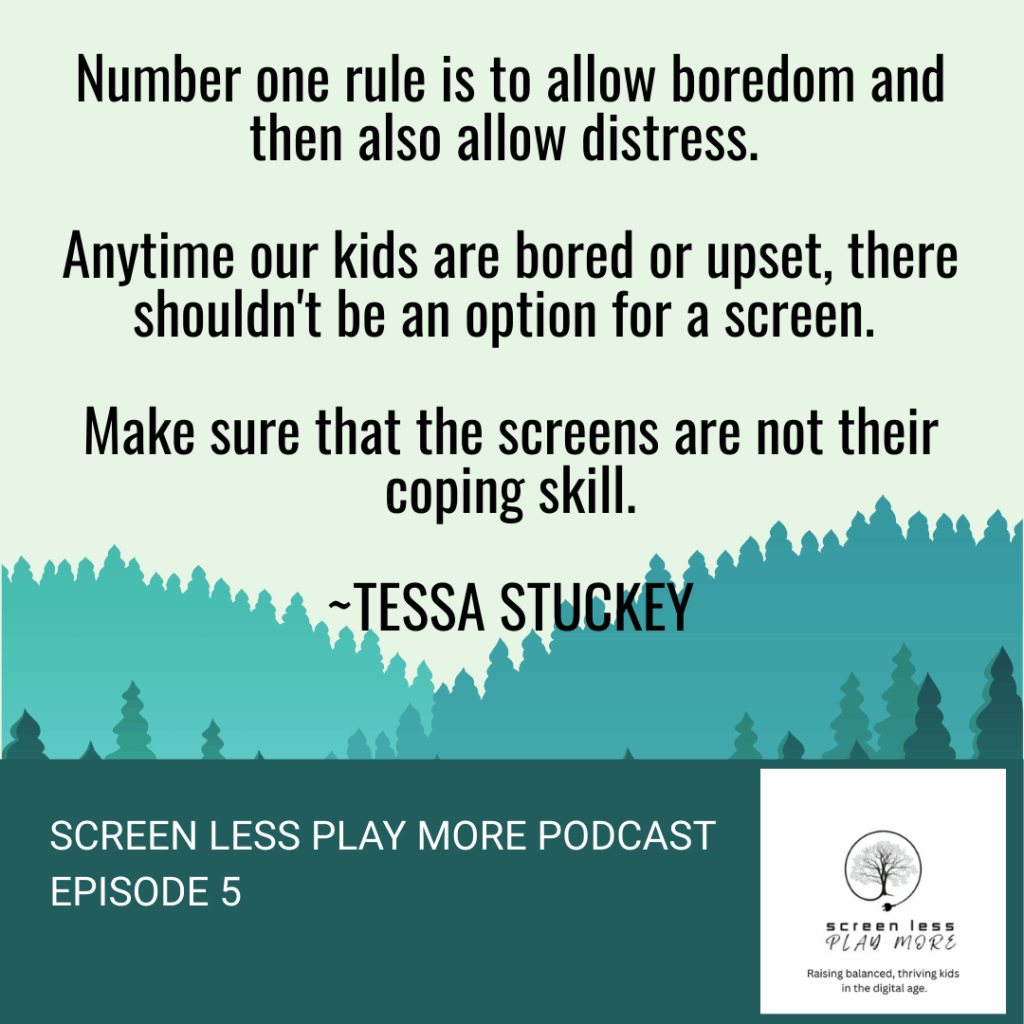
Kids need to have an arsenal of coping mechanisms, a tolerance for boredom, and an attractive life off of screens. Kids will want to get off of social media if they have a fun alternative and a way to connect in-real-life with parents and friends! Family connection is a major way to insulate kids from suicide and dark thoughts.
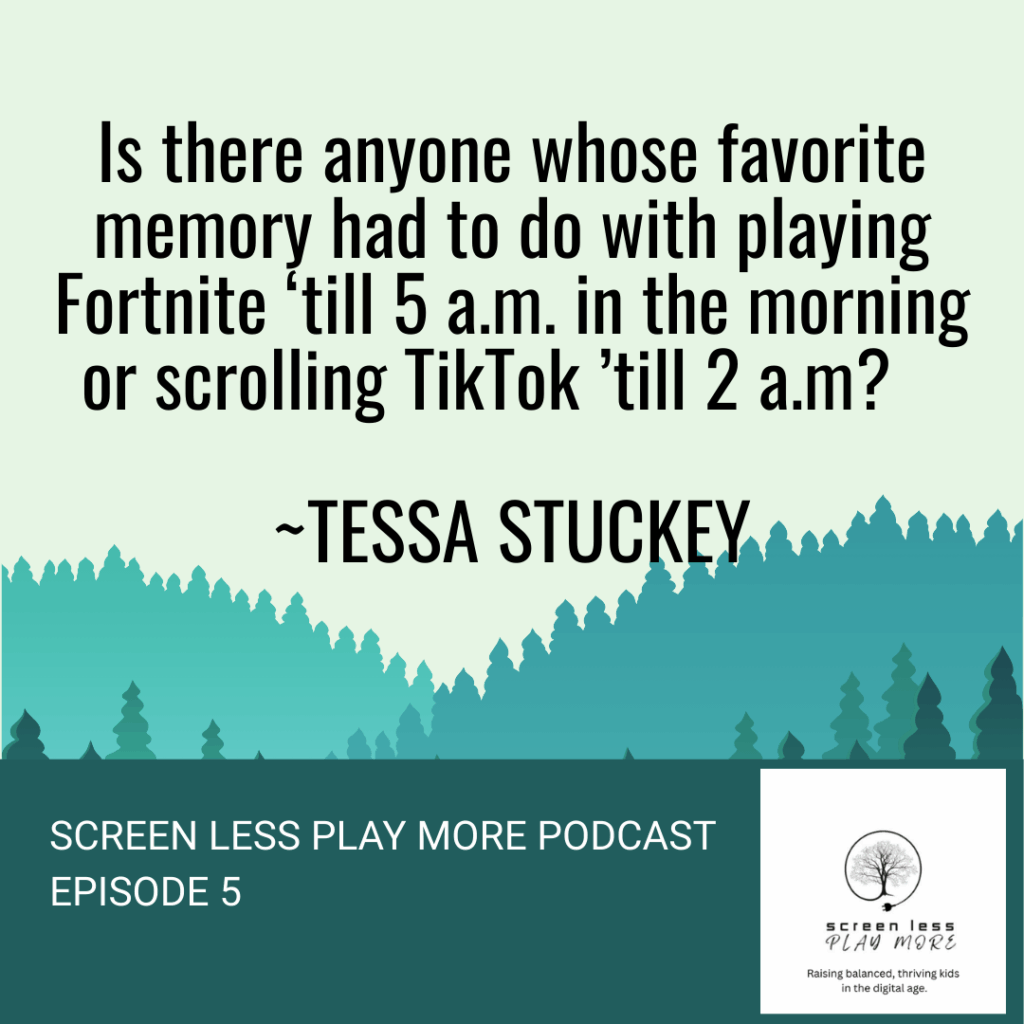
Tessa is also the founder of Project Look-Up, a nonprofit “comprised of therapists, coaches, and parents who join forces to guide families through the intricate landscape of technology, aiming to avert youth screen addiction and address the mental health challenges triggered by the pervasive influence of social media, which has impacted countless individuals in today’s world.” Check out their website to find lots of excellent resources!
After you listen to Tessa’s podcast interview, make sure to check out her book!
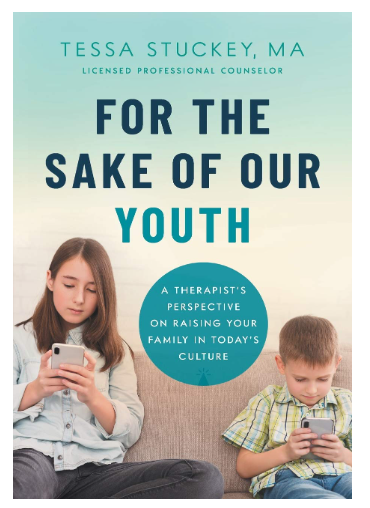
Other great episodes from Screen Less Play More!
Tech is affecting our dating, parenting and friendships. Episode 4 with author Ty Tashiro.
Kids are in a digital crisis – Episode 1 Kat Zilka of Dis/Connect
Your next important read is The Anxious Generation! But read our summary here if you don’t have time for the entire book!
Thanks for visiting screenlessplaymore.com !
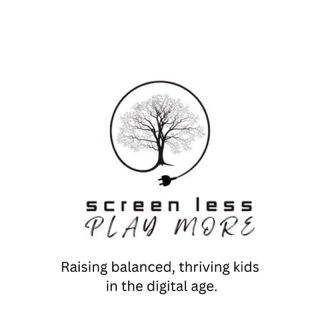
screen time, mental health, parenting, youth, resilience, connection, coping mechanisms, dopamine, social anxiety, technology addiction, offline memories, digital age, attention-seeking behavior, self-worth, social media, online predators, suicide awareness, parenting tips, childhood independence



